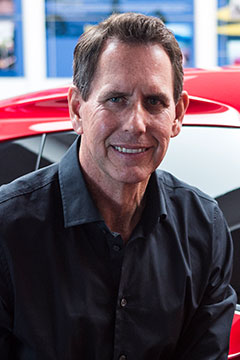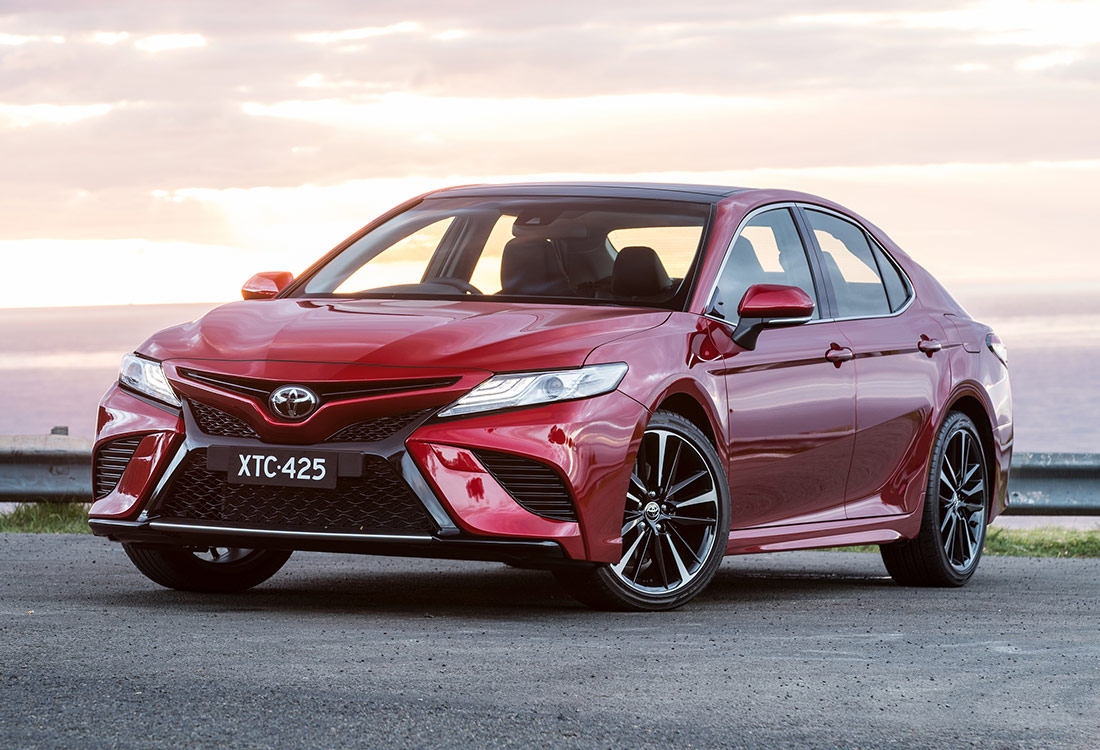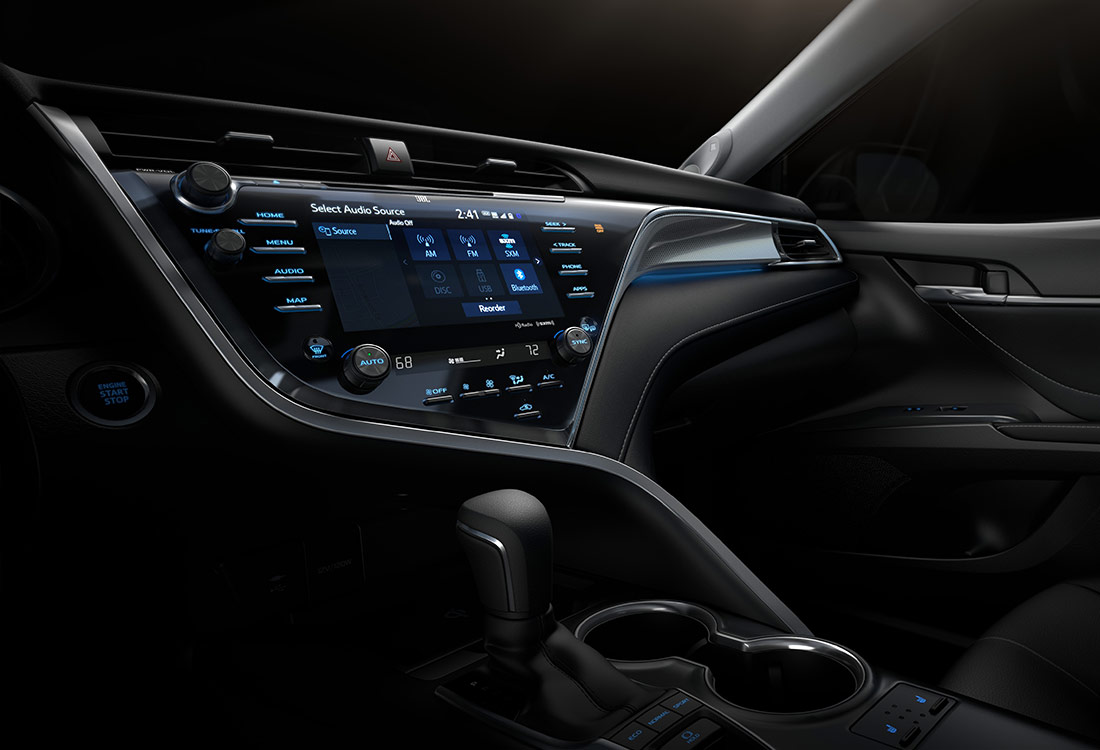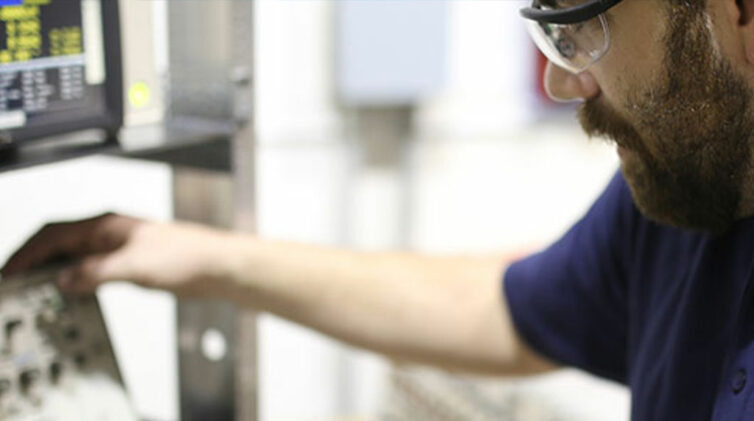
Calty Design Research president Kevin Hunter
PASSENGER cars will remain a vital pillar in Toyota’s global product range despite announcements by Ford – and possibly General Motors – that it would progressively phase out making passenger sedans for the US market.
But to remain competitive in the sedan market, Toyota believes its passenger-car range will need to push boundaries on design and performance to make sedans attractive to buyers.
The company believes that the trend away from sedans in North America may be more a case of car-makers no longer building appealing sedans rather than buyers not wanting sedans any more.
In Australia to talk about vehicle styling and the future directions for the industry, the president of Toyota’s California-based Calty Design Research design studio, Kevin Hunter, said Toyota was “still committed to the passenger car”.
“If you deliver the right product you get results,” he said, adding that design remains vital to the ability of a car company to sell cars.
“Part of the problem in the US is that people weren’t being offered the right sedan and they weren’t happy with that. That really bit into sales.
“There is profit in emotion. We are passionate about cars and so we carry over the emotion into making better cars. When we succeed, then we have done a good job.”
Mr Hunter said sales of the latest Camry – which marked what he terms the end of the “vanilla cars” that were previously made by Toyota – were strong and that the car “is reinvigorating some people’s hopes in the market”.
“Camry has had a huge impact in the US,” he said of the latest generation that was styled by his studio.
“The new Camry is doing very well (in sales) and our customers have responded well to the new design.
“More and more we design the car inside out. It’s a backwards way to work but the reality is that user experience is all about the interior. We spend a lot of time and effort on the cabin.”
Mr Hunter conceded that the popular vehicle choice today was SUVs “but if you really want performance you have to be lower”.

“You have to have a vehicle that has a low centre of gravity and deliver a sporty feel. There are buyers who want that.
“The same attitude applies to the Corolla – get the seating position down to create a fun car and one that looks sleek.”
Mr Hunter denied there was any pressure on his studio – one of five Toyota design centres in the world – to concentrate on SUVs.
“Clearly we have products on that (SUV) style and we’re not abandoning that area,” he said.
“In the US, we just launched the new Avalon which is a premium sedan based on the same architecture (as Camry) and we have high hopes for that.
“In the US we are also developing the final designs for several cars to be built in North America with styling based on regional taste and we have taken onboard regional input from the area.”

Mr Hunter, stressing that the passenger car was far from dead, said Toyota was “looking in areas that we think people desire – those that people can get emotionally connected to”.
“If we don’t think we can do that in a big way then we probably won’t go after it.
“So we have to be careful about which categories we are moving into. In Camry’s case, we decided to stay in that area and it’s proven to be a good decision.”
He said that Toyota has stated that the advent of autonomous self-drive and ride-share car developments would not necessarily mark the end of car design.
Mr Hunter said incoming EVs may lead to positives such as radical design changes and expanding room inside the cabin.
“Self-driving cars will change the configuration of a cabin – releasing the need for crash panels for example – and make us understand the interaction of the car with the occupant.
“Opening up the space is very valuable. Drivetrains, such as the current petrol-engine and front- or rear-drive layouts, eat up a lot of space. So electric motors, preferably multiple motors that are much smaller and can be better located, would be invaluable to maximising space.
“Maybe we can go to smaller wheels. This trend to big wheels may be over as we change to small wheels to save space.”
Mr Hunter also believes that ride sharing won’t be the death of car design.
“Design matters. If I can ride share in a nicer car, why not?
“So I see myself – and other people – as being able to pick the car they want to take them somewhere.
“I hope the whole ride-share economy doesn’t push cars into a commoditised area where we lose the excitement that surrounds cars.
“No matter where you are, mobility is freedom and how you move is important as well as is how you enjoy it.
“I like to think that we don’t disregard that in the future.”
By Neil Dowling














 Read More: Related articles
Read More: Related articles

